Looking for a dog that can keep up with your adventurous spirit? If you love outdoor activities like hiking, running, or even hunting, a hunting and tracking dog might just be your perfect companion. These dogs are specially bred to excel in tracking scents, helping you find your way through the wild.
Ever wondered how some dogs seem to have an uncanny ability to track scents over long distances? It’s their incredible sense of smell and focused nature that make them masters of the hunt. Whether you’re out for a casual walk or on a more serious pursuit, these dogs bring a level of energy and enthusiasm that’s hard to match.
Ready to learn about these amazing canine athletes? If you’re looking for a loyal, hardworking partner for your outdoor adventures, keep reading! You might just discover your next best friend.
Hunting and Tracking Dog Breeds
1. Labrador Retriever
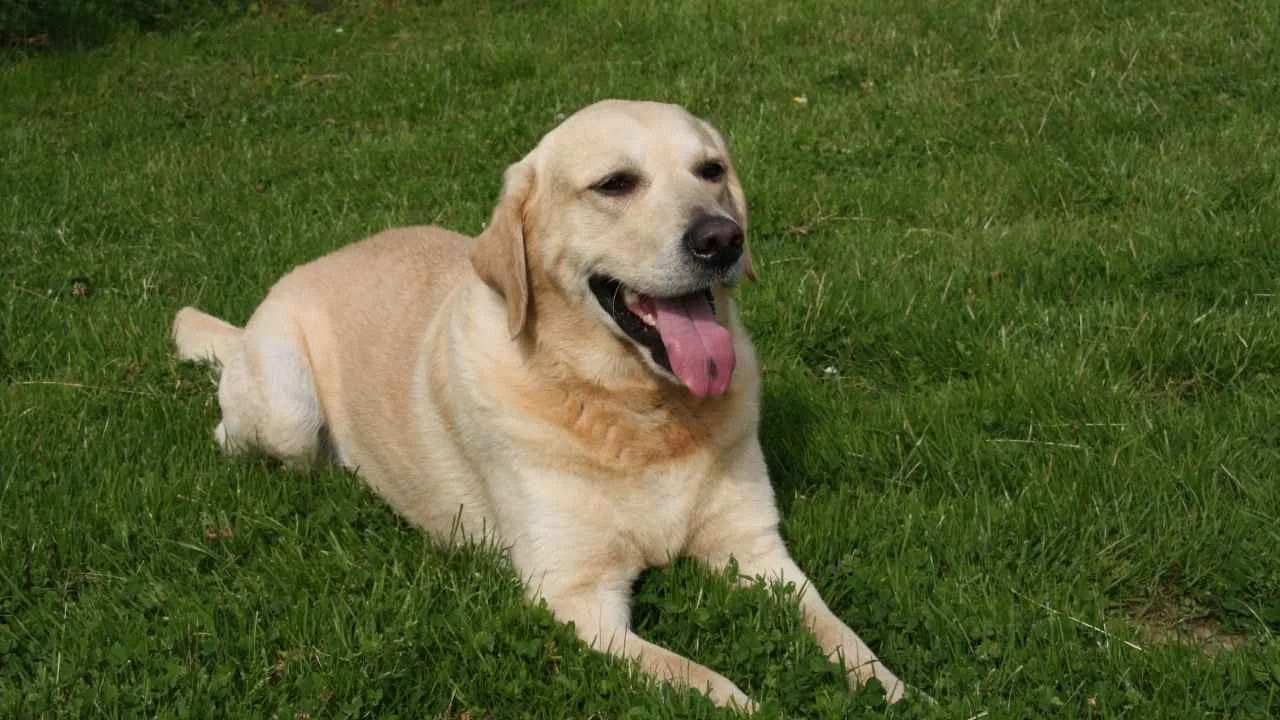
Labrador Retrievers are known for their boundless energy and eagerness to please, making them perfect hunting and tracking companions. Originally bred for retrieving game, Labs have the drive and instincts to track scents over long distances, whether you’re hunting waterfowl or small game. Their keen sense of smell and excellent stamina make them a reliable tracking dog in various conditions.
Have you ever wondered why Labs seem to get along with everyone? It’s not just their friendly demeanor. VCA states that their intelligence, easygoing, and social nature make them highly trainable, which is crucial when you’re looking for a dog that can work alongside you in the field. This breed can stay focused and calm, even when there’s a lot of action around them.
Labs are also highly adaptable. Whether you’re in the thick of the woods or navigating marshy terrain, they thrive in different environments. They excel in tracking scents across multiple terrains—wetlands, forests, or fields. Their water-retrieving skills are legendary, making them ideal for hunting in aquatic areas.
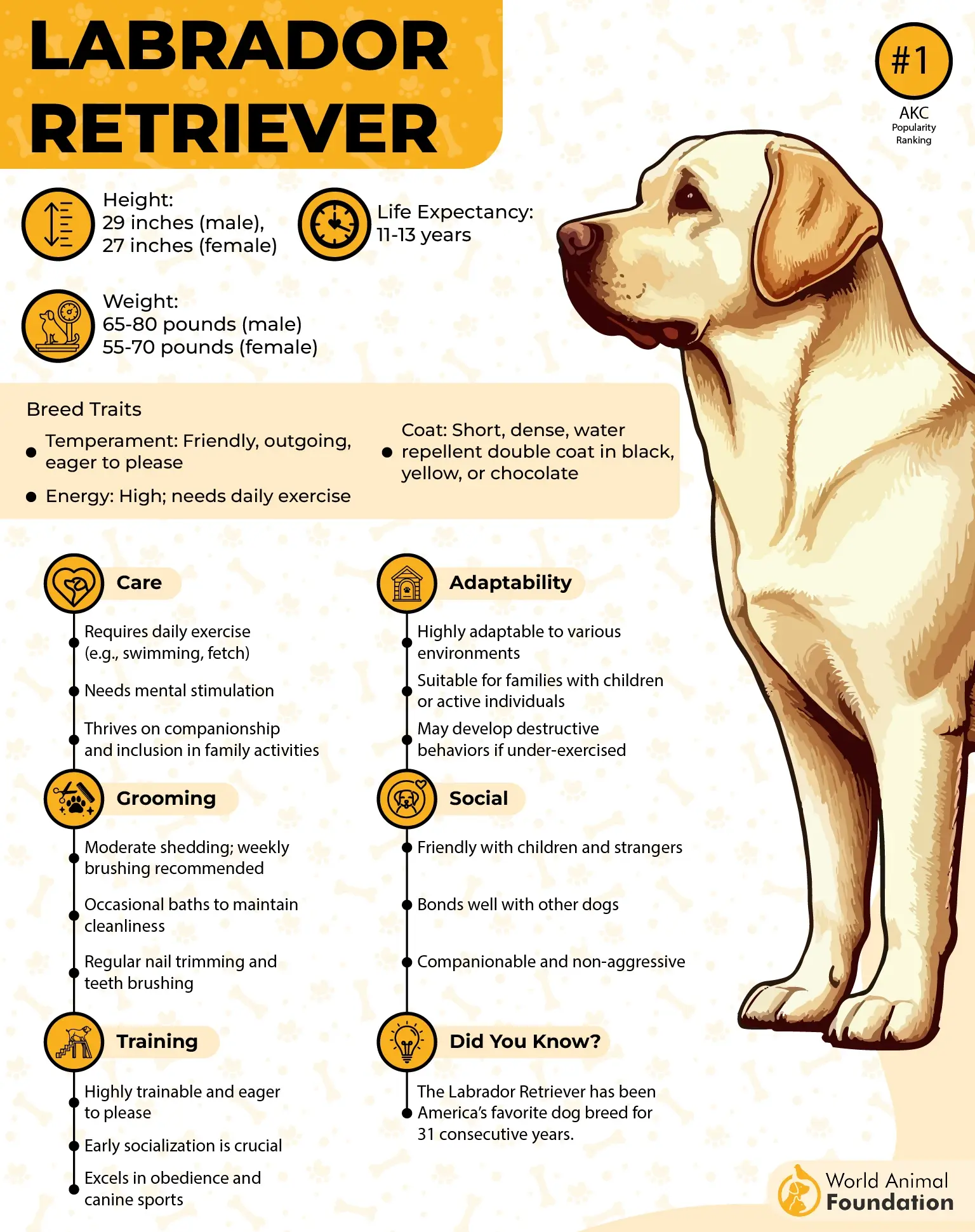
Their strong bond with their owners means that they work well as hunting partners, often anticipating your next move. Have you ever noticed how a Lab seems to read your mind? That’s the result of their deep connection with you, making them invaluable in tracking and retrieving.
It is their versatility that sets them apart from other breeds. Not only do they track, but they’re also fantastic at retrieving prey. Their soft mouths allow them to bring back game without damaging it, a trait that makes them a hunter’s dream dog.
Fun Fact: Did you know that Labrador Retrievers are not only great hunting dogs but also one of the most popular dog breeds in the world? Their friendly nature and versatility make them favorites in many homes!
2. Golden Retriever
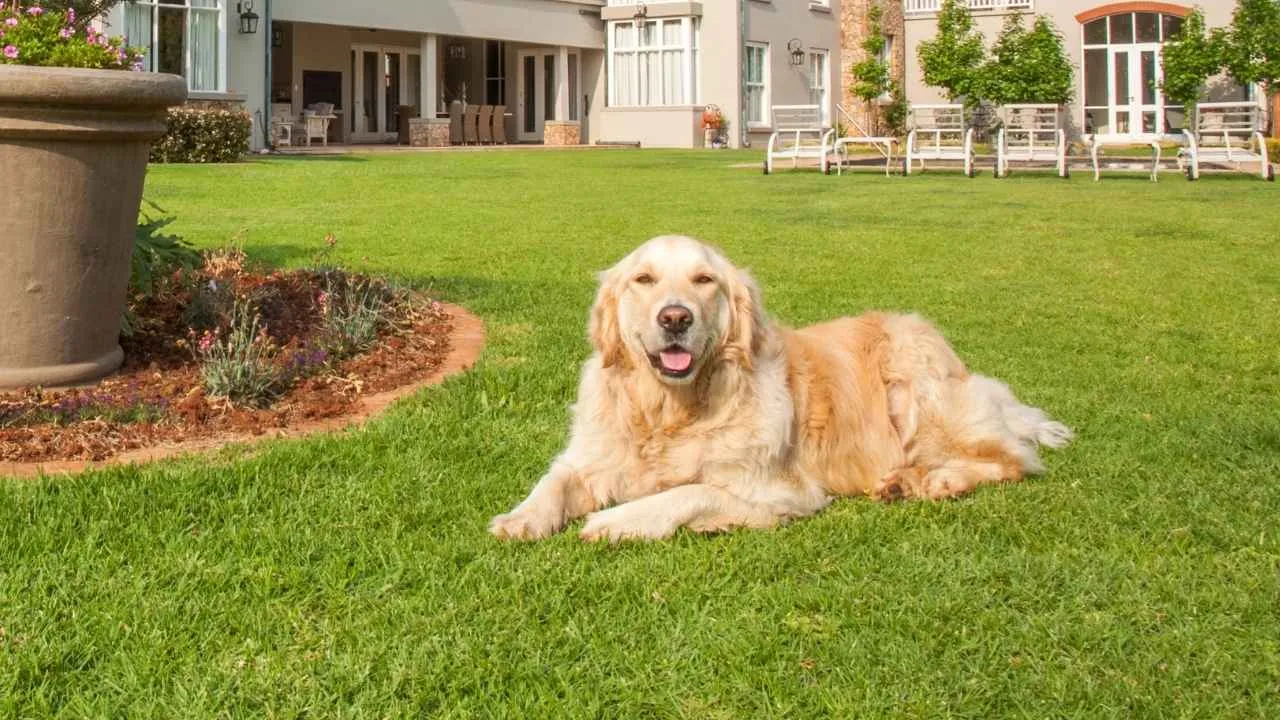
Golden Retrievers might look like fluffy family pets, but don’t let that soft coat fool you—they’re serious when it comes to hunting and tracking. Originally bred in Scotland for retrieving waterfowl, these dogs have an exceptional nose and a natural instinct to retrieve game with care. Their calm, controlled demeanor in the field makes them a trusted companion for both beginner and seasoned hunters.
One of their standout traits? Patience. Golden Retrievers don’t just charge into the field—they wait, they observe, and they listen. That kind of controlled energy is gold (pun intended) when you’re trying to keep things quiet and focused during a hunt. They’re known to hold a steady point and retrieve only when given the signal.
Goldens also have a unique advantage when it comes to scent tracking. Their ability to track a scent over long distances—even through dense brush or water—is incredibly precise. Whether it’s on dry ground or in marshlands, they stay locked in and determined. Plus, their long legs and strong build help them power through rough terrain with ease.

Despite their grace in the field, Golden Retrievers are total goofballs at home. Purina states that they have a silly, playful side that balances out their working dog nature perfectly. That dual personality—focused on the hunt, joyful at home—is a big reason people fall in love with them. Who wouldn’t want a hunting dog that also doubles as a cuddle buddy?
And let’s not forget their stamina. These dogs can go all day, and they don’t lose steam easily. Whether it’s a full-day upland hunt or hours tracking through the woods, they stay motivated and alert without burning out. If you need a dog that doesn’t tap out halfway through, a Golden’s your go-to.
3. Beagle
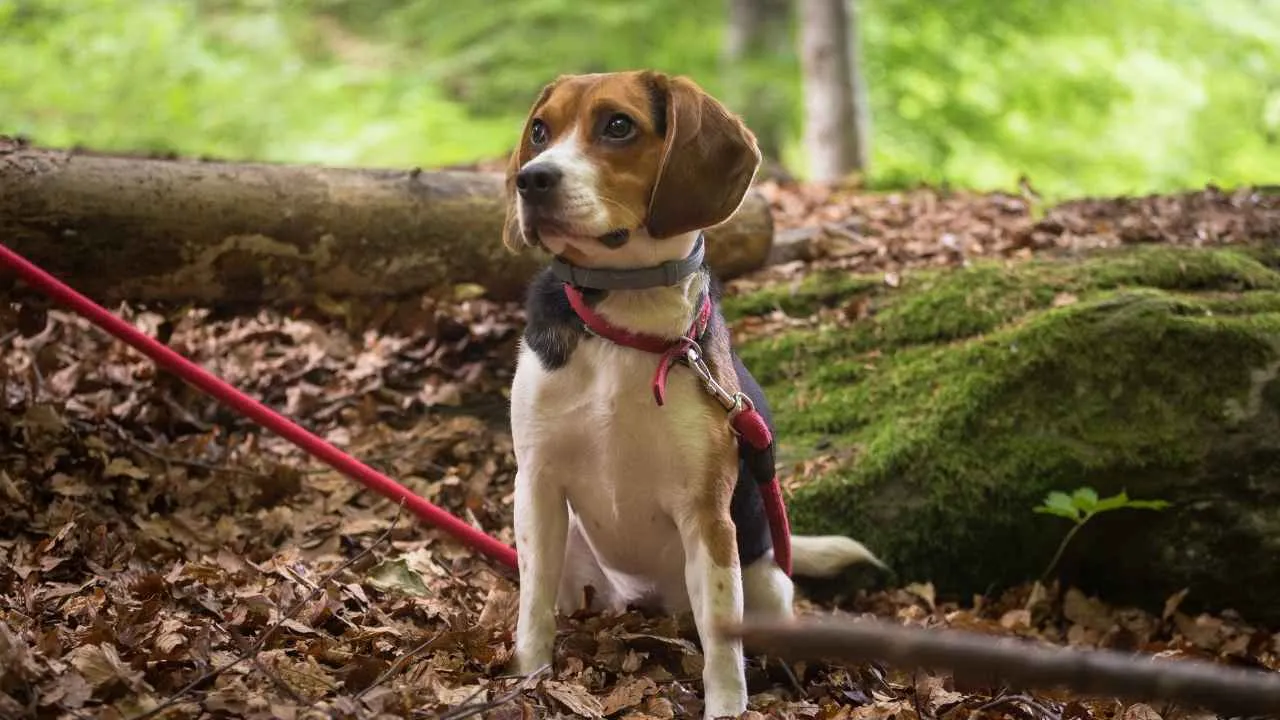
Beagles may be small in size, but when it comes to scent tracking, they’re absolute powerhouses. Their sense of smell is so sharp that it’s often compared to the Bloodhound’s—and that’s saying something. With over 220 million scent receptors packed into that cute little nose, these dogs can pick up a trail and stay on it like they’ve got built-in GPS.
What makes Beagles different from many other tracking dogs is their determination. Once they catch a scent, it’s game on. These guys are relentless and won’t give up the trail until they’ve figured out where it leads. It’s not uncommon to see a Beagle nose-down, tail-up, trotting through the brush without a care in the world—except for the scent they’re following.
Ever wondered why they’re so vocal on the trail? That famous “baying” isn’t just noise—it’s communication. Beagles let out a loud, distinct bark to signal they’ve found something. It’s their way of saying, “Hey, over here!”—a useful trait when they’re working far ahead of their human partner in thick terrain.
Their compact size also works in their favor. Beagles can squeeze through brush, under fences, and into places larger dogs can’t. Britannica states that they are perfect for hunting smaller game like rabbits, where a nimble, quick-footed dog is a real advantage. They’re not afraid to get dirty and dive nose-first into the undergrowth.
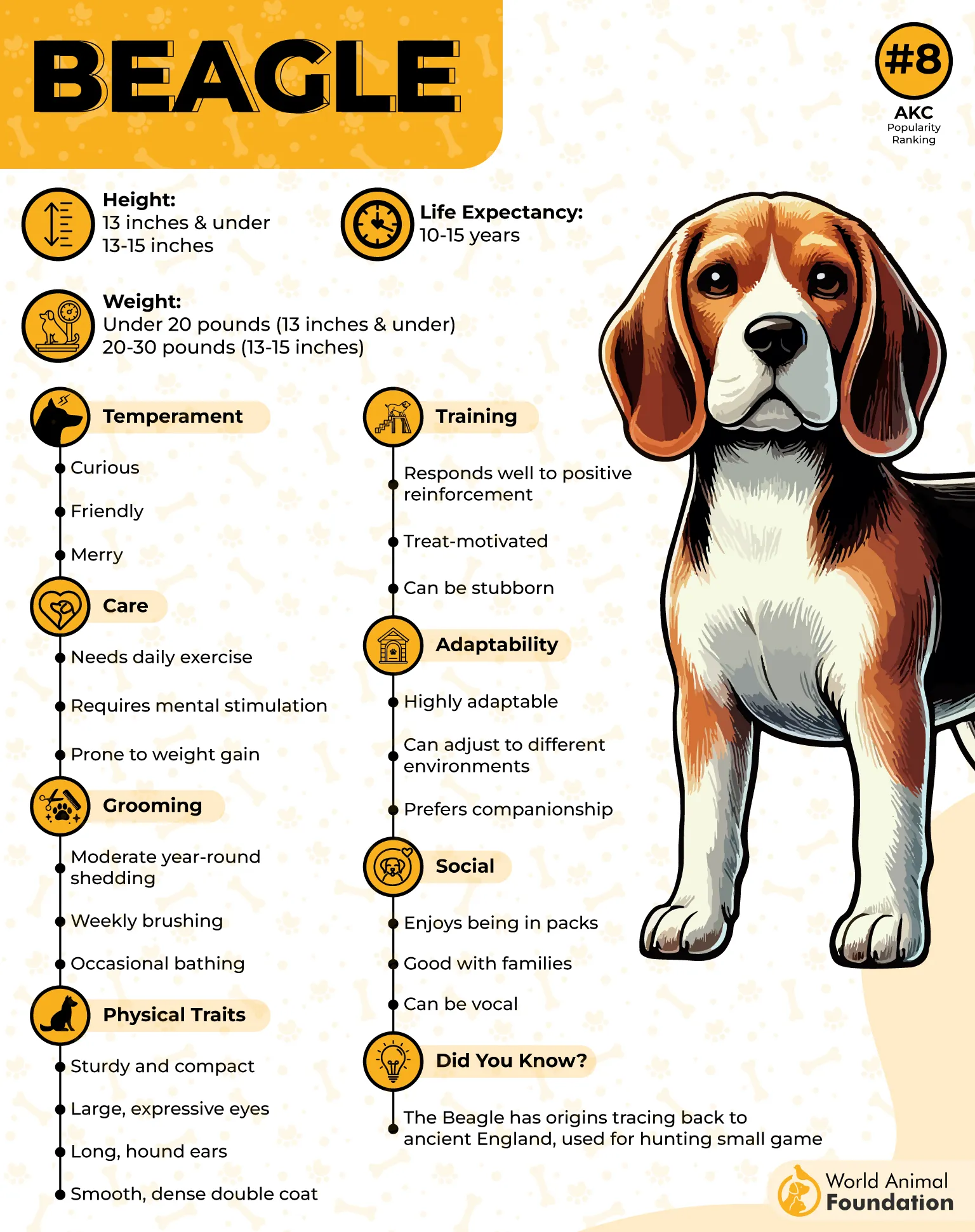
One of the most impressive things about Beagles? Their pack mentality. These dogs were bred to hunt in groups, which means they work incredibly well with other dogs. Got a few hounds on a trail? The Beagle will naturally fall into sync, making teamwork feel like second nature. It’s like having a furry teammate who instinctively knows their role.
4. Bloodhound
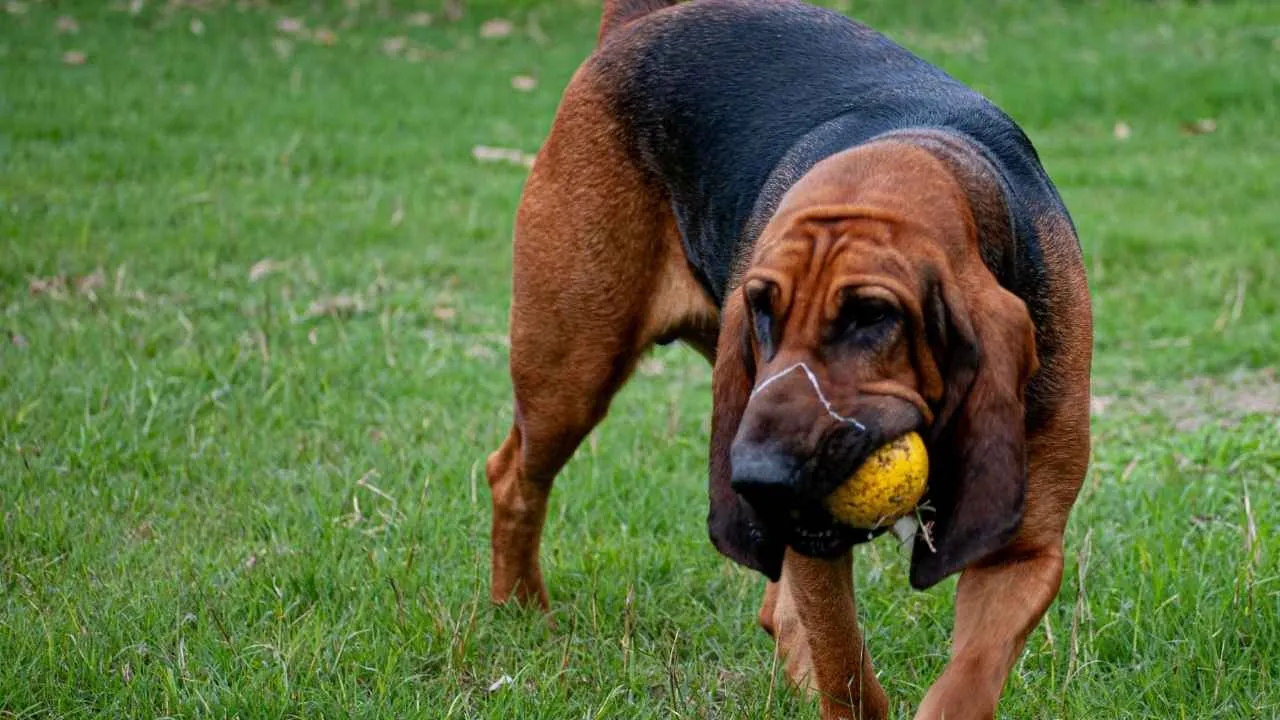
If tracking had a king, the Bloodhound would wear the crown. These dogs are in a league of their own when it comes to following scent trails—so much so that their findings have been used as evidence in court. Yep, their noses are that accurate. A Bloodhound can follow a trail that’s days old and stretch it across miles of tough terrain without missing a beat.
It’s not just the number of scent receptors (which tops 300 million, by the way) that makes them so legendary—it’s how they use them. Their long, droopy ears and wrinkled skin help stir up and trap scent particles close to the nose as they move. It’s like nature built them to be scent vacuums. No exaggeration.
Unlike other hunting dogs that mix tracking with retrieval or herding, Bloodhounds are scent specialists through and through. Their focus is razor-sharp. When they catch a scent, they go full detective mode—methodical, silent, and intense. They’re not easily distracted, which makes them ideal for serious tracking work like search and rescue or trailing elusive game.
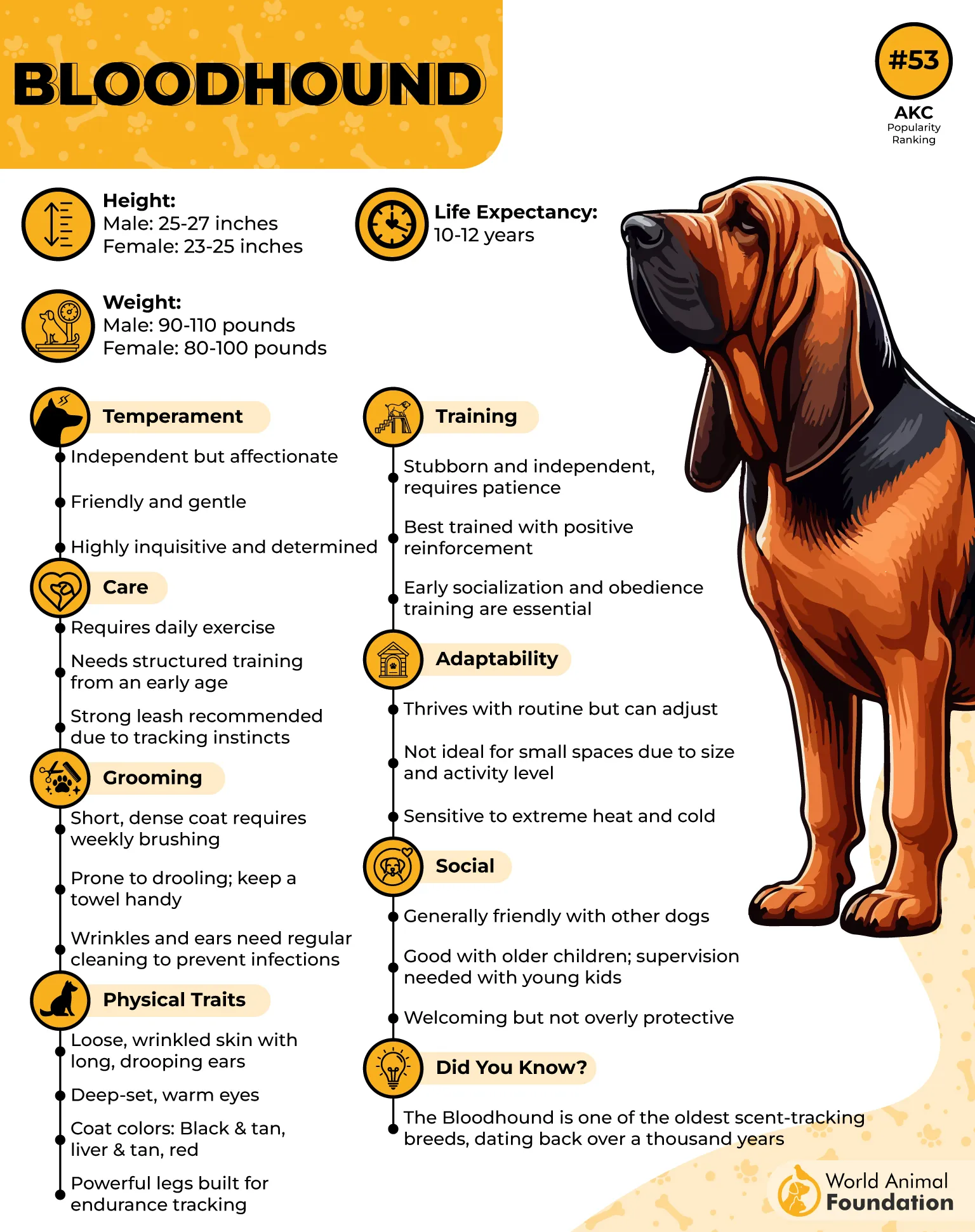
These dogs work at their own pace—slow, deliberate, and totally locked in. It’s not about speed for them; it’s about precision. They’re not the dog to sprint after a rabbit, but if you need to know where that rabbit went three days ago? The Bloodhound’s your expert.
They’re also incredibly resilient but gentle, says CKC. Bloodhounds can track across all kinds of environments—mud, snow, rocky terrain, you name it. Their strong, muscular frame gives them endurance over long distances, and their thick skin protects them from brush and thorns along the way.
5. Bluetick Coonhound
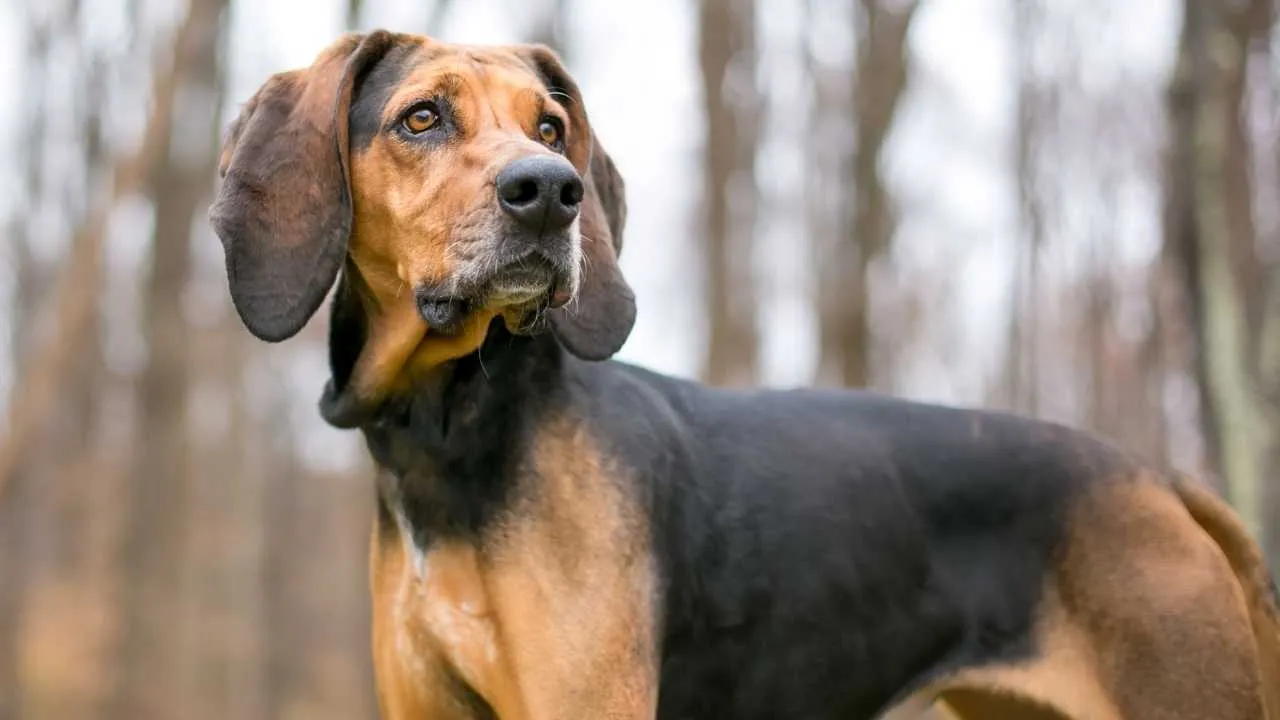
Bluetick Coonhounds are night-hunting specialists with a drive that’s hard to match. Bred in the American South to trail raccoons through dense forests and rough backcountry, they’ve got a scenting ability that’s fierce and focused. Their cold-trailing skill—that is, following older, fainter scent trails—is what really sets them apart.
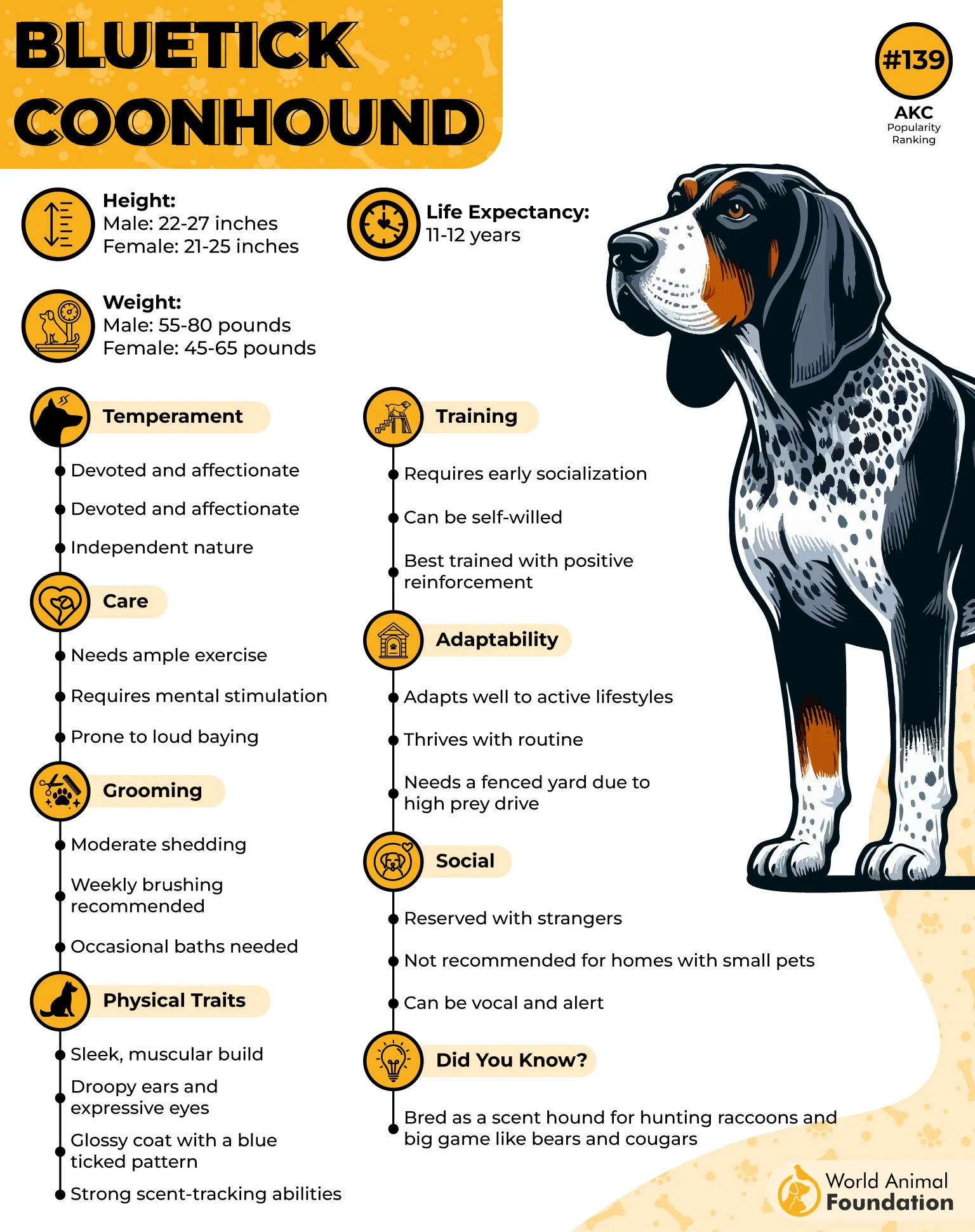
These dogs don’t just track—they announce it. With their signature booming bay, a Bluetick tells you exactly when it’s on the scent or has treed the prey. It’s not random noise, either; seasoned hunters learn to read those vocal cues like a language. Want a dog that keeps you updated from deep in the woods? This one’s got a built-in loudspeaker.
Ever hunt in the dark? That’s where the Bluetick shines—literally. Their namesake “blue-ticked” coat helps them blend into moonlit terrain, but their voice helps hunters keep tabs on their location. They’re built for nighttime work, moving steadily through thick cover while locking onto even the faintest trail.
These hounds are incredibly determined. Once they catch a scent, they’re relentless. You can’t easily pull them off a trail, and they’ve got the stamina to track game for hours without slowing down. It’s not just instinct—it’s obsession-level dedication to the chase.
Unlike more generalist breeds, Blueticks are all business when they’re in the field. They don’t get distracted by rabbits or squirrels mid-hunt—they’re too locked in. Their focus makes them perfect for coon hunting, but they’re also used for larger game like bobcats and even mountain lions in some parts of the U.S.
That said, they’re not wild brutes—they’re actually quite affectionate and loving, states WebMD. At home, they’re loving and laid-back, especially after a long hunt. But be warned: if they’re under-stimulated, they’ll find ways to entertain themselves, and you might not love the results. A tired Bluetick is a good Bluetick.
6. American Foxhound
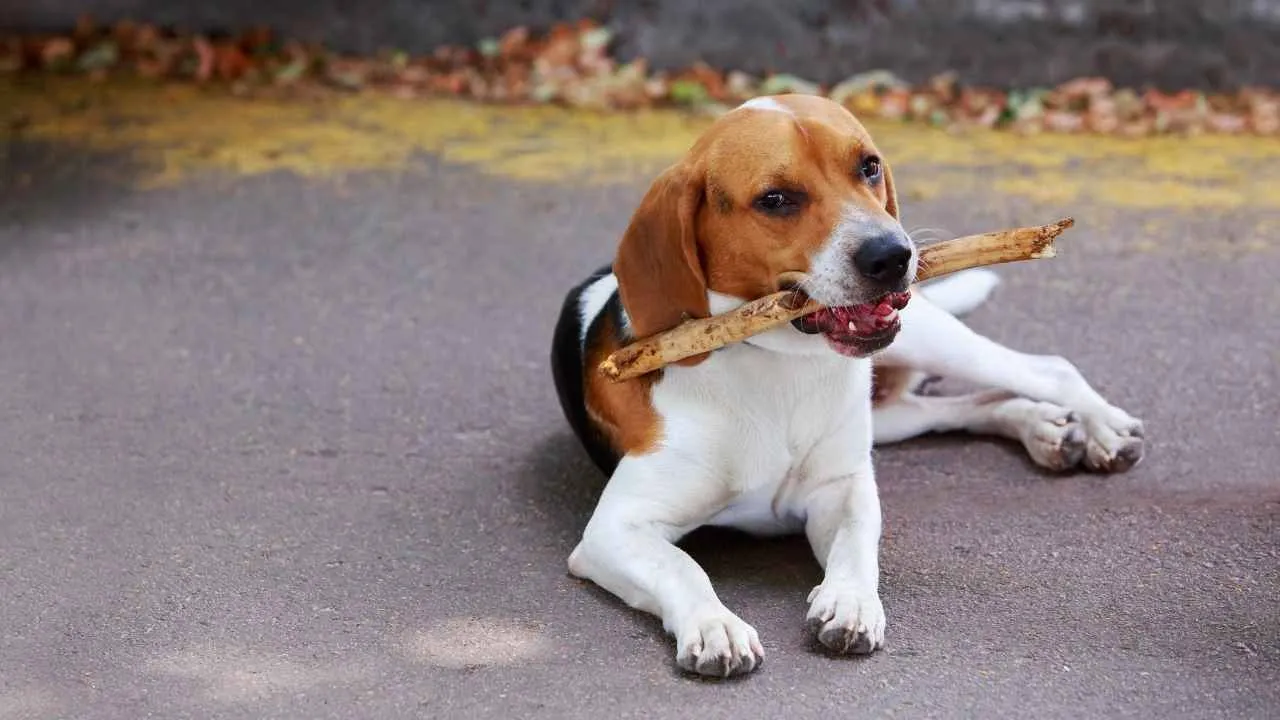
The American Foxhound is a scent hound through and through, with roots that trace back to colonial America and a reputation for relentless pursuit. Built for speed and stamina, these dogs were bred to cover miles of rugged terrain chasing foxes, and they’re still unmatched in long-distance trailing.
Unlike their English cousins, American Foxhounds are slightly taller, leaner, and built for speed. That lanky frame gives them a smooth, effortless gait that allows them to glide across fields and forests. They don’t just move fast—they move smart, adjusting pace based on terrain and scent intensity.
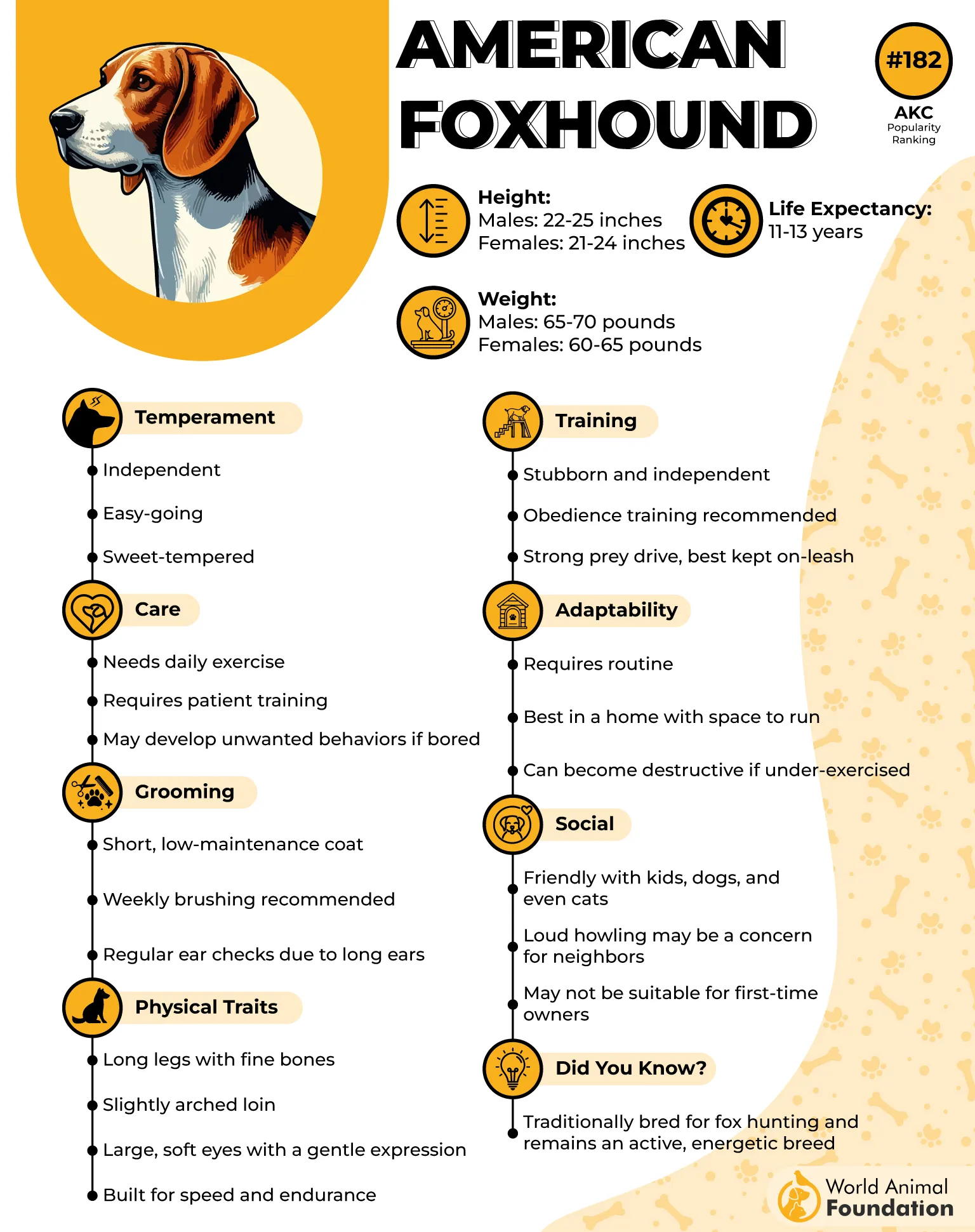
Their voice is another signature trait—distinct and melodic, with a ringing quality that carries across valleys and woods. Hunters can distinguish an individual Foxhound’s voice within a pack, which is pretty impressive when everyone’s howling at once.
These tough and strong dogs are also known for their independence, as per the AKC. While they’re eager trackers, they don’t always check in unless trained well from an early age. It’s part of their hunting DNA—they’re used to thinking on their feet and solving problems on the move.
Their training sweet spot? Early, consistent exposure to recall commands and boundary setting. With proper structure, they’re respectful, obedient, and a dream to handle in the field. Without it? Let’s just say they’ll be following their nose first and your voice second.
7. English Springer Spaniel
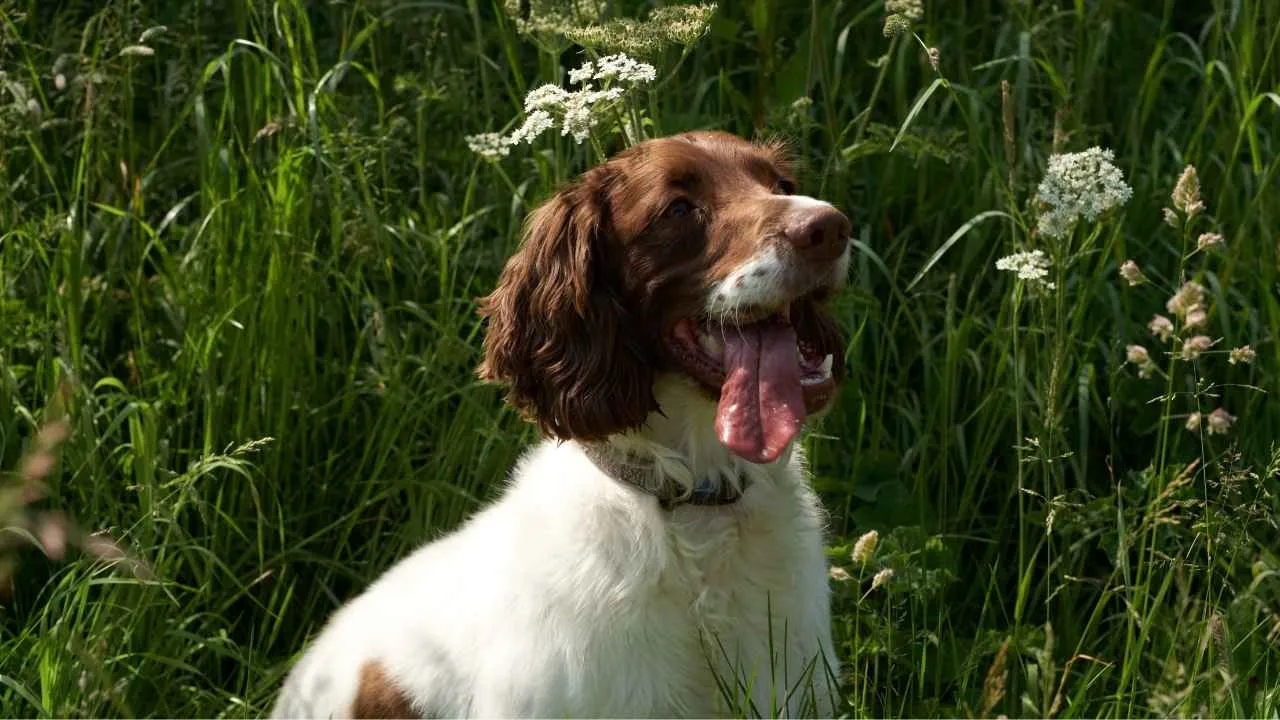
The English Springer Spaniel is the ultimate upland game hunter—always alert, always moving, and totally tuned in. Bred to flush and retrieve game birds, these dogs don’t just track by scent; they spring into action (literally), launching birds from cover with contagious energy and pinpoint focus.
Unlike deep-trailing hounds that follow long, winding scent trails, Springers work closer to the hunter, zigzagging across the field to pick up fresh scents. Their sweeping movement is methodical yet full of bounce, like a living radar system with a nose. Missed a hidden pheasant? Not with a Springer on the case.
Their nose is sharp, sure—but it’s their eyes that set them apart too. This smart dog breed is incredibly observant, using both scent and sight to zero in on birds. It’s a tag-team sensory approach that makes them invaluable in thick cover or uneven terrain.
They’re also incredibly responsive. Springers are known for their eagerness to please, which makes training smoother compared to more independent breeds. With the right guidance, they quickly learn field commands, whistle cues, and hand signals. You won’t be shouting into the wind when a Springer’s around—they’re always checking back in.
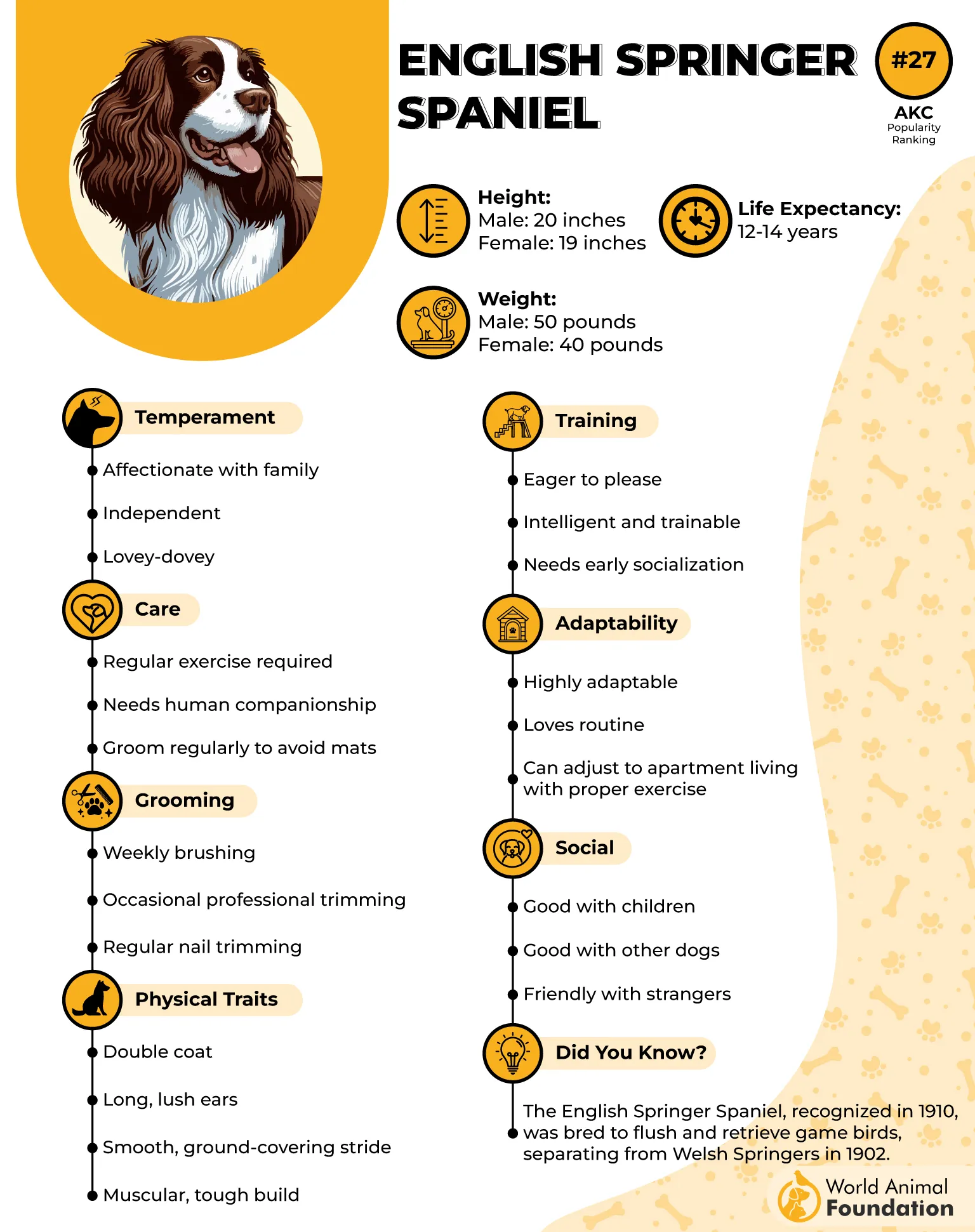
Another standout trait? Their soft mouth. When retrieving birds, they’re gentle and precise, ensuring the game isn’t damaged, says Orvis. That kind of skill doesn’t come easily—it’s a combination of instinct, breeding, and solid training. For hunters who value clean retrievals, this is a big win.
8. Irish Setter
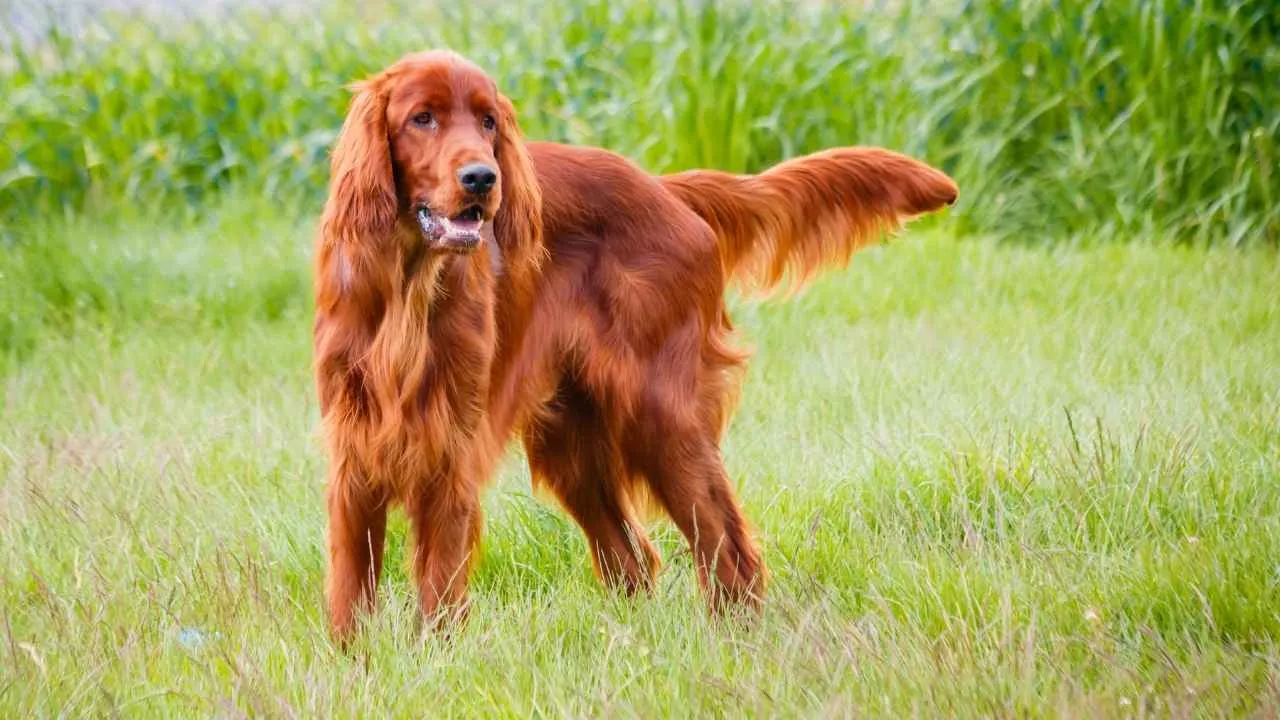
The Irish Setter isn’t just a pretty face with that gorgeous red coat—it’s a powerhouse of energy, speed, and agility. Known for their long, flowing fur and lively personality, these dogs are built for the hunt, especially when it comes to upland birds like pheasants and quail. But what makes them stand out in the field? It’s their unmatched enthusiasm and non-stop drive.
They’re the type of dog that makes a full sprint look effortless. Irish Setters are built for speed, with long legs that carry them gracefully over rough terrain. Their natural ability to cover ground quickly means they’ll find the game fast, and when they spot it, they’ll freeze in a beautiful, classic pointing stance. But they don’t stop there; they’re also known to retrieve with the same intensity, bringing birds back with precision and care.
While some breeds focus heavily on scent, the Irish Setter combines a keen nose with excellent sight to pick up birds from a distance. This blend of senses makes them incredibly effective in diverse environments, whether in open fields or wooded areas. They may even use their keen eyesight to spot game from far away, and their impeccable instincts take over when it’s time to chase.
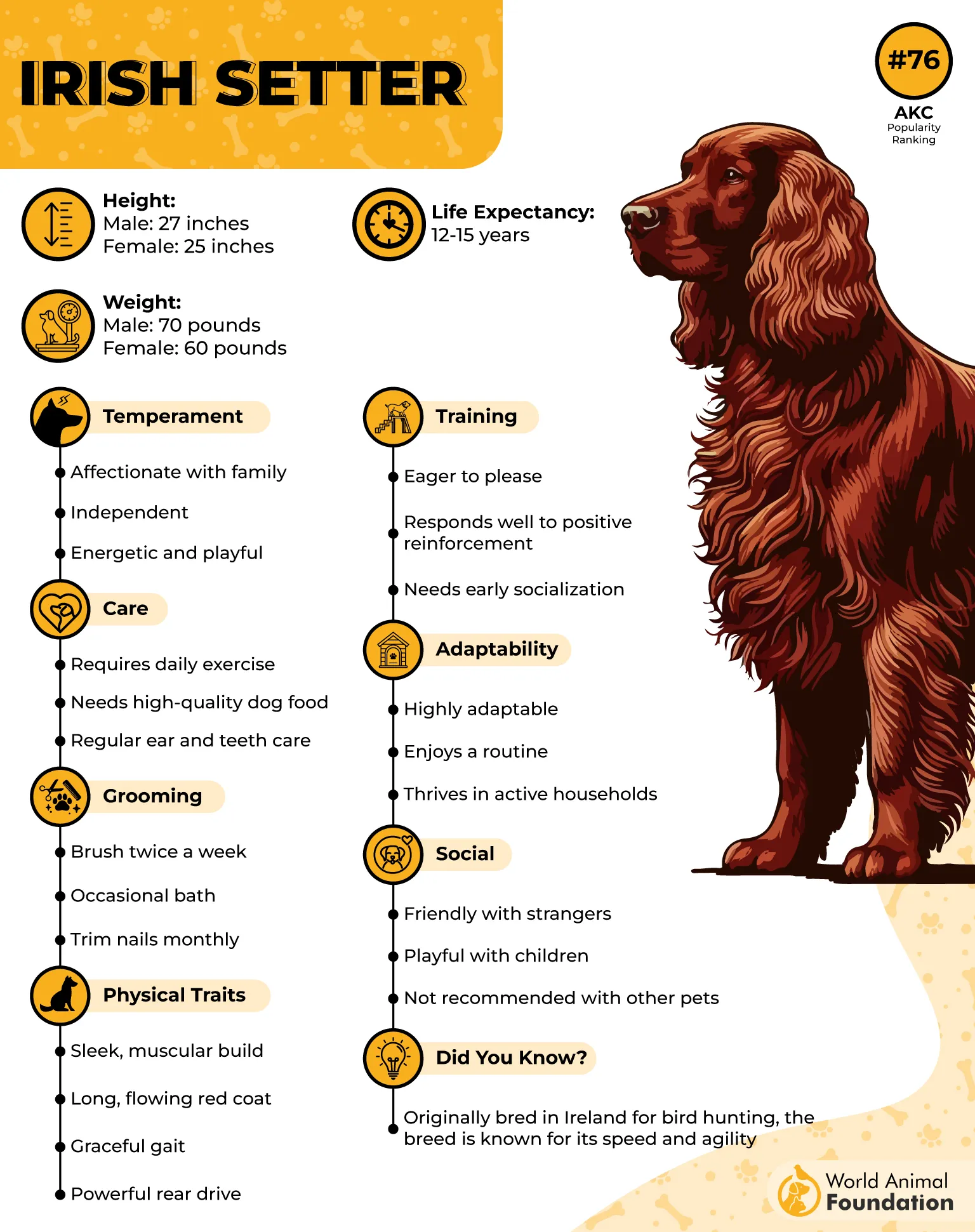
Despite their energetic nature, Irish Setters are intelligent and responsive, making them relatively easy to train, says Omlet. With early socialization and consistent commands, they’re quick learners who enjoy being challenged. The best part? They don’t have that stubborn streak that some other hunting breeds might show. They love to please, so they’re eager to pick up new tricks and refine their hunting skills.
But they do need regular exercise. If you’re not actively training or hunting, make sure to give them a good run every day to keep them from getting restless. Irish Setters are active dogs that thrive when they have a purpose, and if you don’t provide one, they’ll likely find one on their own—probably in your backyard, rearranging your garden.
9. German Shorthaired Pointer
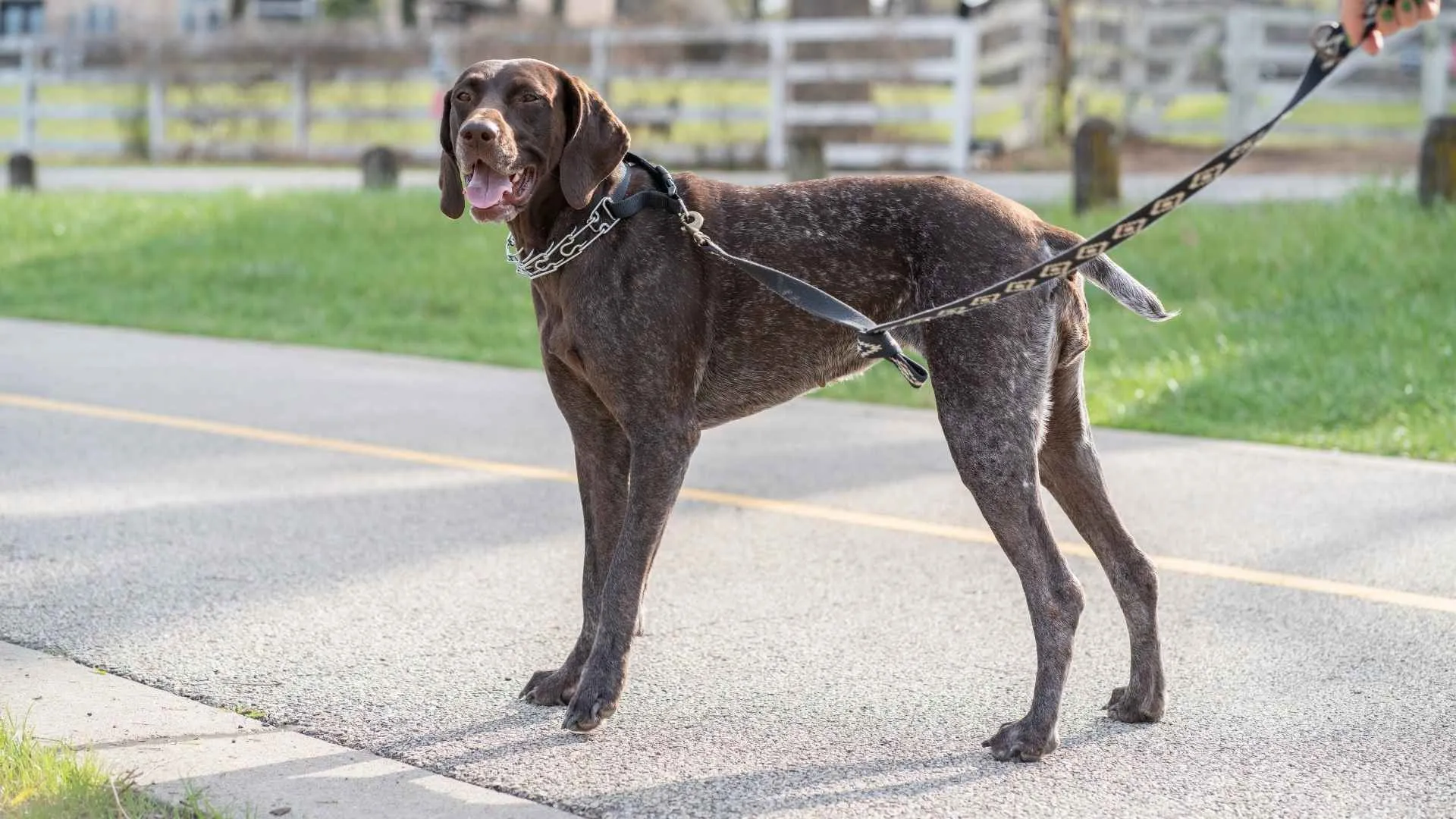
The German Shorthaired Pointer (GSP) is a powerhouse in the hunting world, known for its versatility. Whether you’re after upland birds, waterfowl, or larger game, this breed can do it all, excelling in various terrains and weather conditions. Their energetic nature makes them a dream for hunters.
With their sharp nose and keen instincts, GSPs are quick to pick up scents. They cover large areas efficiently, making them ideal for flushing, tracking, and retrieving. Their drive to work is unmatched, and they’re often the first to lock onto a scent in the field.
Their agility is another major selling point. GSPs are fast runners and excellent swimmers, which makes them perfect for chasing game across all types of landscapes. Whether it’s a forest, field, or lake, they’ll adapt seamlessly to whatever’s required.
These dogs are incredibly loyal and affectionate with their families, says PetMD. Despite their high-energy nature, they love being around their people and are great with children. GSPs will always want to be involved in family activities, whether it’s hunting or just hanging out.
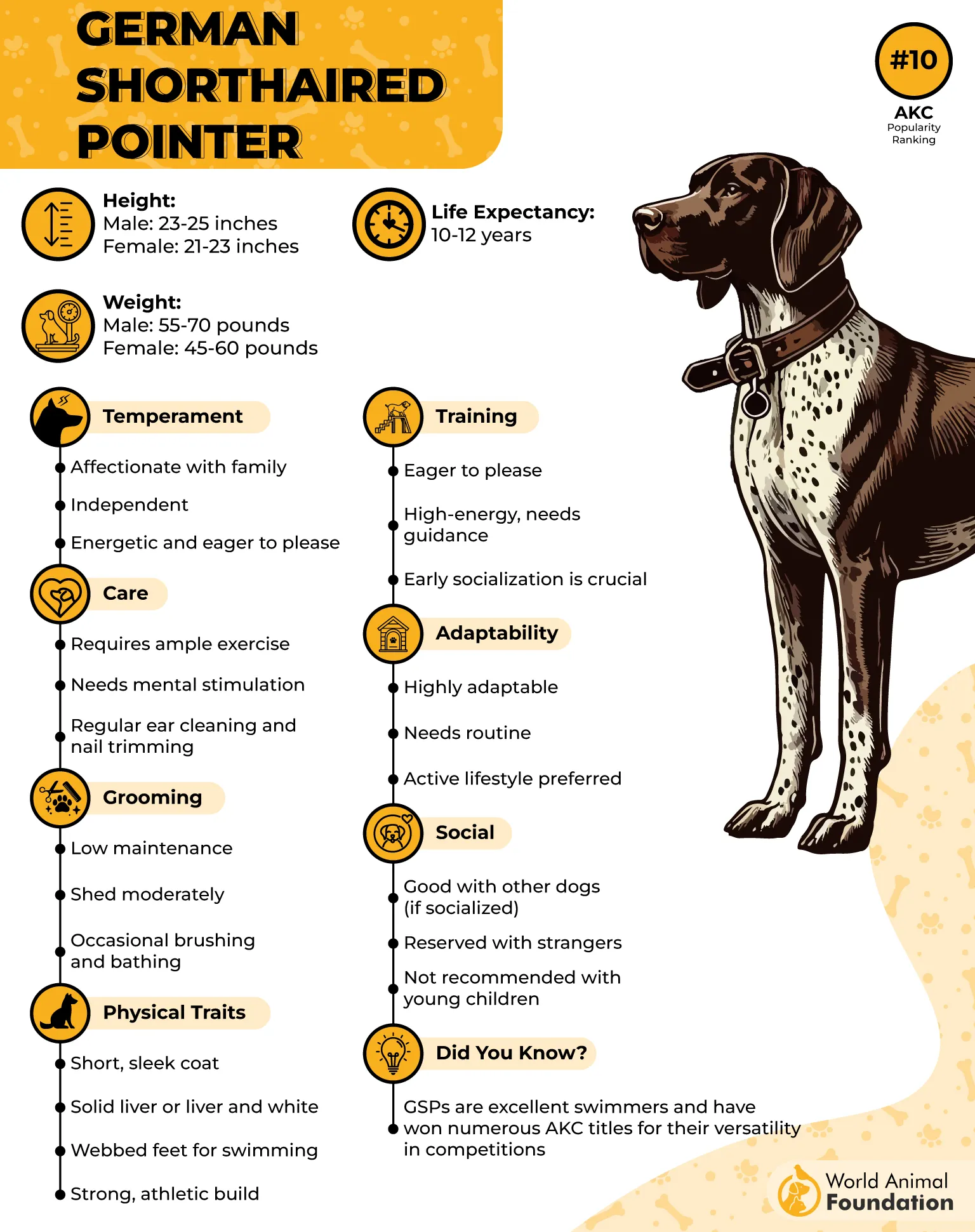
Their short coat is low-maintenance, but they do shed. Regular brushing is needed to manage the shedding and keep their coat looking sharp. After a full day of work, they may also need a bath to clean off dirt and debris.
GSPs are happiest when they’re part of the action, whether it’s hunting, playing, or just being with their family. They thrive on interaction and are best suited for active households that can meet their physical and mental needs.
Conclusion
When it comes to performance in the field, hunting and tracking dog breeds have proven their worth time and time again. Whether you’re flushing upland game birds, retrieving waterfowl, or trailing wounded deer, these versatile dogs bring unmatched drive and skill to the hunt. From the eager German Shorthaired Pointer to the loyal Labrador Retriever, each hunting dog breed excels at a specific task—some retrieve birds, others point upland birds, and many serve as reliable gun dogs for upland bird hunting or duck hunting alike.
Many of these breeds, like the English Springer Spaniel, Golden Retriever, and American Foxhound, were originally bred for one job: to hunt. And even today, their hunting instincts, strong prey drive, and keen sense of smell remain their greatest tools. Whether you’re out for a rabbit hunt, deer hunting, or chasing small game, there’s a perfect dog for every style of pursuit. Some dogs hunt ducks, others trail feral hogs or even mountain lions—with Plott Hounds, Pit bull, Treeing Walker Coonhounds, Chesapeake bay retriever, and Basset Hounds taking the lead in big game scenarios. Even catch dogs and blood trailing dogs play crucial roles in tracking down wild boar and other tough targets.
Interestingly, many of these great hunting dogs also double as great family dogs. Despite being high-drive, high-energy dogs, they can be trained to become excellent family pets with the help of a skilled dog handler. Thanks to organizations like the American Kennel Club and United Kennel Club, breed standards remain intact, and sporting breeds continue to thrive in both competitions and homes. From spaniel breeds to mixed breeds and even wire-haired Dachshunds, many bird dog breeds today adapt to both field and family life. So, whether you’re seeking the best hunting dog, a sharp-nosed tracking dog, or just a loyal companion to train hunting dogs with, these different breeds offer something special. After all, what other dogs can hunt birds, trail game, and still curl up beside you at the end of the day?

